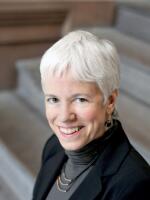The first hearing of a state commission to implement a public campaign finance system for New York’s elections was overshadowed by the issue of whether to end fusion voting, which allows candidates to run on multiple ballot lines. Critics of the proposal say Democratic Governor Andrew Cuomo wants to strike against a left-leaning party that he’s been feuding with, something the governor denies.
Advocates of public campaign financing who spoke at the commission hearing Tuesday say the state should adopt New York City’s largely successful matching small donor program, where modest contributions are matched by public fund at a 6-to-1 ratio.
But they also say that the commission should not be looking at whether to end fusion voting. Democratic State Assemblyman Harvey Epstein was one of many state and city lawmakers to testify at the hearing.
“Stay away from fusion voting,” Epstein told commissioners. “This is not the time to mess with a system that works.”
Epstein says he does not believe it was the Legislature’s intention, when it agreed with the governor to set up the commission during the state budget talks, to also end fusion voting.
“I don’t believe you have the authority, based on what we did,” Epstein said.
Commissioner Henry Berger, an experienced election law lawyer who was jointly appointed by the governor and the Democratic legislative leaders, argued that yes, the commission does have the power to look at whether to end cross-party endorsements.
“We’ve heard this repeatedly,” Berger said, sounding annoyed. “You and your colleagues adopted a law that created us and we’re bound by that law. We’re bound by the mandates of that law.”
Berger says the commission is supposed to look at how multiple-party endorsements of a single candidate might artificially inflate the amount of public funds a candidate receives, and he believes that includes considering whether fusion voting can continue.
Blair Horner, with the New York Public Interest Research Group, says there is a simple way to resolve the problem without changing fusion voting: have the matching donor funds remain with the candidate, regardless of how many party lines they are running on. He says that’s been the rule for decades in New York City.
“That’s a legitimate issue to deal with,” Horner said. “The city of New York has already figured out how to deal with it.”
Some advocates of public campaign financing have called the fusion issue a “poison pill” that could ultimately derail a public matching donor program for the state.
The commission members decided at their first meeting, held in August, that all recommendations they make will be tied together, including, potentially, an end to minor party cross endorsements. Commissioners will only be permitted to vote up or down on the total package.
Two minor parties, the left leaning Working Families Party and the state’s Conservative Party, have filed separate lawsuits, and Conservative Party Chair Jerry Kassar has said Cuomo has a “political vendetta” against the Working Families party, after the party endorsed Cuomo’s 2018 primary opponent Cynthia Nixon.
Cuomo, speaking at an unrelated event, downplayed tensions with the Working Families Party.
Cuomo was asked by reporters whether he personally wanted to end fusion voting, and he did not directly answer, saying he supported cross endorsements in former elections.
“I have benefited from fusion voting in the past,” Cuomo said. “I’ve run on multiple party lines, so I have participated in it.”
Cuomo would not say how he feels about fusion voting going forward, saying he does not want to “influence” the commission.
“I’m not going to tell the commission what to do,” he said.
Cuomo says he’s going to let the commission exercise its own “independent judgement."



